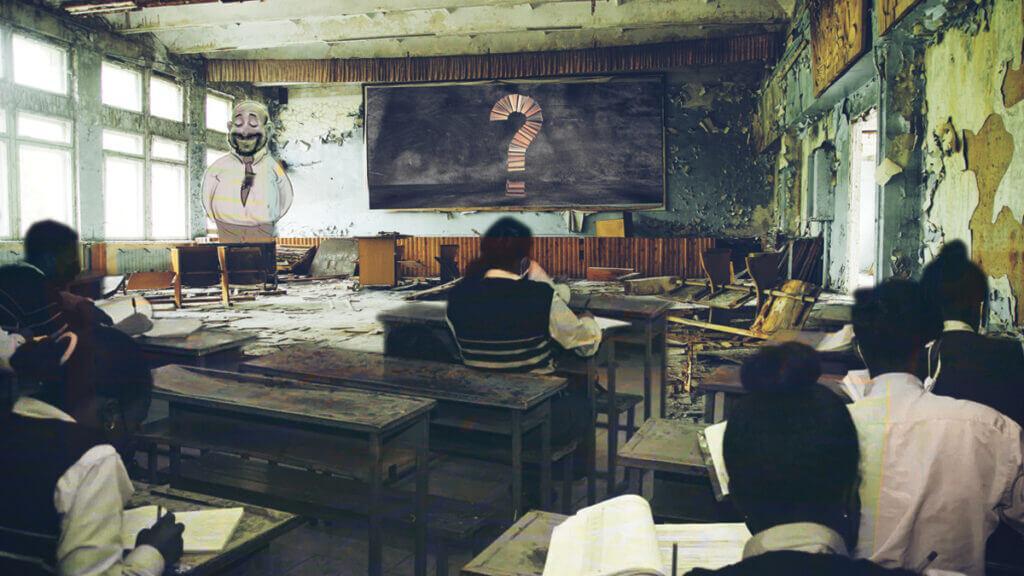
Africa-Press – Ethiopia. As the armed conflict in Ethiopia’s Amhara region continued with no end in sight, the impact on education has reached yest a new critical level as dozens of secondary schools say they will not administer this year’s 12th-grade national exams, leaving thousands of students uncertain about their academic future.
Speaking to the press this week, Eyerus Mengistu, Deputy Head of the Amhara Regional State Education Bureau, confirmed that only 470 out of 685 secondary schools in the region will conduct university entrance examinations due to prevailing security concerns.
Approximately 99,880 students from relatively peaceful areas have registered to sit for the exams. However, for the majority of Amhara’s students, school is a distant memory.
“We have gone out to the countryside and are staying there. What else can we do?” said a 12th-grade student from North Gojjam Zone. “We are working on development with our families, and I am currently cultivating onions through irrigation. There is no school at this time,” he told the outlet.
Despite the adversity, some schools are striving to provide educational continuity. In Sekota town, Mengistu Arega, a teacher at Wag Seyum Admas Wesen Secondary School, said, “even shifts are being held to provide tutorial classes for students,” highlighting how better-prepared students are trying to tutor their peers.
In North Gojjam Zone, Negalign Tegegn, Head of the Zone’s Education Department, acknowledged that the security situation has severely hindered preparations but said efforts continue to support students who can still take the exam.
A system in collapse?
The current crisis is exacerbated by ongoing clashes between government forces and Fano militants. Addis Standard reported that as recently as March more than 4.5 million students remain out of school, and over 3,600 schools remain closed despite an extended registration deadline.
The Amhara region recorded the lowest performance in last year’s Grade 12 national school-leaving examination, a situation largely attributed to the fact that only half of the eligible students were able to take the exam, due to the ongoing conflict, raising alarms among students, parents, and education experts, who argue that the figures vividly reflect the devastating impact of the armed conflict.
Demis Endris, another Deputy Head of the Education Bureau, captured the gravity when is said: “If the situation persists, tomorrow, an Amhara mother will not have a child to graduate from university… We will not have children who we can educate and deploy to different parts of the world as we have been doing until now.”
His comments echo earlier reports that, by October 2023, 3.9 million students were already out of school, figures that have only grown since.
The armed conflict has not only displaced families and shuttered schools but also targeted educators. In February, Addis Standard reported the abduction of 13 teachers in North Gojjam Zone by individuals identified as Fano militants. Weeks later, 11 teachers were executed in Merawi town after being questioned, “Why are you teaching?”, a grim reflection of the dangerous environment educators now face.
“Teachers, fathers of knowledge, were killed after being asked ‘why are you teaching?’” confirmed the Amhara Region Communication Bureau.
Beyond the human toll, the region’s educational infrastructure is in ruins. According to Zemene Abeje, Director of Planning and Monitoring at the Bureau, more than 400 schools in East Gojjam Zone alone have been completely destroyed, forcing the region to delay school openings in many places by up six months. A broader study estimates the cost of rebuilding at over 112 billion Birr, covering not only physical reconstruction but also supplementary educational support services.
Previous reports by Addis Standard about the crisis in East Gojjam and North Gondar Zones indicated that only 86 out of 996 schools and 192 out of 565 schools, respectively, had resumed any form of regular learning. In Raya Kobo Woreda of North Wollo, educational activity was at one point virtually nonexistent due to continued fighting.
The region’s Education Bureau had initially aimed to enroll 7 million students for the 2024/25 academic year (2017 EC). However, actual registration has failed to reach even 2 million, underscoring the devastating scale of the disruption in the overall academic activities
For More News And Analysis About Ethiopia Follow Africa-Press





